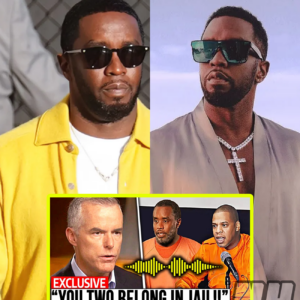Heat Exhaustion and Poor Planning Mar Donald Trump’s Arizona Rally
On a blistering summer day in Arizona, former President Donald Trump’s rally quickly turned from a political spectacle to a medical emergency.

The event, held during the hottest part of the day, saw dozens of attendees suffer from heat exhaustion, requiring immediate medical attention. This incident has not only raised concerns about the health and safety protocols at Trump’s rallies but also highlighted the former president’s prioritization of fundraising over the well-being of his supporters.
A Scorching Day in Arizona
Trump’s Arizona rally was scheduled at an unfortunate time, with temperatures soaring between 102 to 105 degrees Fahrenheit. The decision to hold the event during the peak heat hours was heavily criticized as attendees were left to endure the intense heat for extended periods. The lack of adequate shade and hydration facilities exacerbated the situation, leading to several individuals needing medical intervention on-site.
Medical Emergencies and EMT Response
As the rally proceeded, reports began to surface of attendees collapsing due to the extreme heat. EMTs and the Phoenix Fire Department were on high alert, attending to at least a dozen individuals suffering from heat-related ailments. Scenes from the event showed people receiving IV fluids and other emergency treatments to combat dehydration and heat exhaustion.
The Trump campaign has not yet addressed whether they will reimburse the Phoenix Fire Department for the emergency services rendered. The costs and logistics of managing such medical emergencies fall heavily on local authorities, raising questions about the planning and responsibility of political campaigns.
Fundraising Priorities
The timing of the Arizona rally seemed to be strategically planned to accommodate Trump’s subsequent fundraiser in San Francisco. The high-ticket event, priced at $300,000 per person and $500,000 per couple, underscores Trump’s continued reliance on affluent donors despite his populist rhetoric. This prioritization of fundraising over supporter safety has drawn sharp criticism, particularly as many of his supporters faced severe health risks due to the poor timing of the Arizona rally.
Trump’s Unyielding Campaign Schedule
Despite the adverse conditions in Arizona, Trump’s campaign schedule shows no signs of slowing down. Following the Arizona rally, Trump is set to hold another outdoor event in Las Vegas, where temperatures are forecasted to reach as high as 109 degrees Fahrenheit. The choice of venue and timing for these events reflects a troubling disregard for the safety of his supporters, many of whom are elderly and more vulnerable to extreme heat.
Contrasting Leadership Styles
The Role of Charlie Kirk and Turning Point Action
The Arizona rally was organized with the help of Charlie Kirk and Turning Point Action. Kirk, a polarizing figure known for his controversial statements, including comments on Martin Luther King Day and his distrust of minority pilots, played a significant role in rally logistics. Kirk’s inflammatory rhetoric and alignment with Trump’s political agenda further fueled the divisive atmosphere of the event.
Backlash and Public Perception
The fallout from the Arizona rally has been swift, with widespread condemnation from various quarters. Critics have lambasted Trump for endangering his supporters and failing to address the medical emergencies during his speech. The incident has also reignited debates about the responsibility of political leaders to ensure the safety and well-being of their followers.
Moving Forward
As the Trump campaign forges ahead, the events in Arizona serve as a stark reminder of the importance of proper planning and consideration for public safety. The former president’s insistence on holding events in extreme conditions raises ethical questions about his leadership and priorities. For his supporters, the rally was a harsh lesson in the potential risks associated with political fervor.
In conclusion, the Arizona rally was a clear demonstration of the perils of poor event planning and the prioritization of fundraising over supporter welfare. The medical emergencies that ensued are a testament to the need for more responsible and considerate political campaigning. As Trump’s campaign continues, the health and safety of attendees must be paramount to prevent further incidents and ensure a more secure environment for political discourse.
News
(VIDEO) Celebs that P Diddy EXPLOITED for Cash
P Diddy and the Dark Side of the Entertainment Industry The entertainment industry is no stranger to scandal and controversy, but the recent revelations surrounding P Diddy (Sean Combs) have brought to light a web of disturbing allegations and connections…
(VIDEO) Kevin Hart IN TEARS After New Leaks EXPOSE Him At Diddy’s After Parties!!
Kevin Hart: A Complex Journey Through Fame, Scandal, and Personal Growth Kevin Hart, the renowned comedian and actor, has led a life marked by both incredible professional success and deeply personal scandals. His journey from selling sneakers to becoming one…
(VIDEO) “He Ruined My Life” Former Diddy Employees TEAM UP To EXPOSE Him!
The Dark Side of Fame: Allegations Against Diddy and the Revelations from Former Employees The music industry is often glamorized for its glitz and glamour, but behind the scenes, it can harbor dark secrets and troubling behavior. Recently, Sean “Diddy”…
(VIDEO) “He’s Why Justin Bieber Is DEPRESSED!” Undercover FBI Agent EXPOSES Diddy
The Tumultuous History of Snoop Dogg, P. Diddy, and the East Coast-West Coast Rivalry Hip-hop history is fraught with feuds, friendships, and ever-changing alliances. Central to many of these stories are iconic figures such as Snoop Dogg and P. Diddy…
(VIDEO) “Diddy Did Usher Dirty Forever” Snoop Dogg EXPOSES Sean Combs!
The Tumultuous History of Snoop Dogg, P. Diddy, and the East Coast-West Coast Rivalry Hip-hop history is fraught with feuds, friendships, and ever-changing alliances. Central to many of these stories are iconic figures such as Snoop Dogg and P. Diddy…
(VIDEO) Undercover CIA Agent EXPOSES Diddy & Jay Z!
The Fall of P. Diddy: A Dismantling of Credibility and the Unfolding Legal Crisis Introduction In recent years, Sean “P. Diddy” Combs has found himself at the epicenter of numerous controversies and legal battles that have significantly tarnished his once-polished…
End of content
No more pages to load











